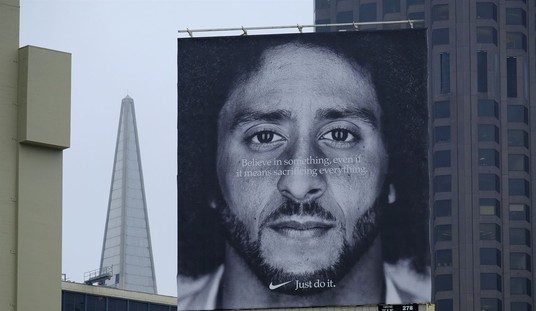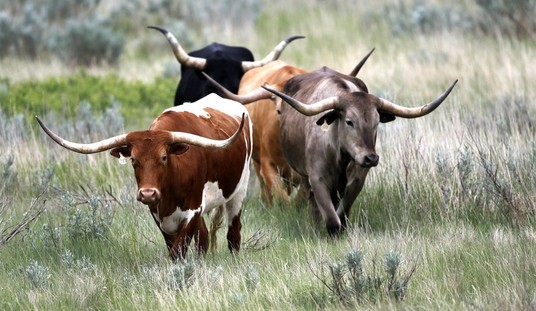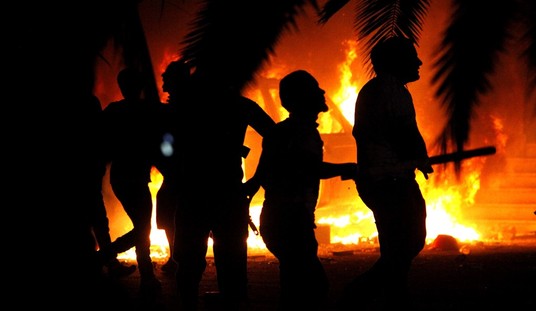Yesterday, Barack Obama tried to shrug off another of the burgeoning scandals in Washington during a joint press conference with UK PM David Cameron. Allowing the US press just one question, Obama called on the AP’s Julie Pace, and probably regretted doing so almost immediately. (It could have been worse; had it been later in the day, she probably would have asked him why he wanted to look at her phone records.) Pace managed to offer a multi-tiered question, one portion of which asked Obama why the post-Benghazi talking points got massaged so heavily as to remove any hint that the consulate had been attacked by terrorists.
Obama responded by falling back on the myth of his own making:
“The day after it happened, I acknowledged that this was an act of terrorism.”
Glenn Kessler objects, giving the statement four Pinocchios in the Washington Post today. The Rose Garden speech, Kessler reports — again — addressed terrorism in general, not the Benghazi attack. Over the next several days, Obama had three opportunities to call it a terrorist attack, but declined to do so.
For instance, here’s Obama with Steve Kroft on September 12th being asked the very question:
KROFT: “Mr. President, this morning you went out of your way to avoid the use of the word ‘terrorism’ in connection with the Libya attack.”
OBAMA: “Right.”
KROFT: “Do you believe that this was a terrorist attack?”
OBAMA: “Well, it’s too early to know exactly how this came about, what group was involved, but obviously it was an attack on Americans. And we are going to be working with the Libyan government to make sure that we bring these folks to justice, one way or the other.”
Thirteen days later, Obama still didn’t use the T-word when asked directly, on ABC’s The View:
QUESTION: “It was reported that people just went crazy and wild because of this anti-Muslim movie — or anti-Muhammad, I guess, movie. But then I heard Hillary Clinton say that it was an act of terrorism. Is it? What do you say?”
OBAMA: “We are still doing an investigation. There is no doubt that the kind of weapons that were used, the ongoing assault, that it wasn’t just a mob action. Now, we don’t have all the information yet so we are still gathering.”
Kessler concludes:
So, given three opportunities to affirmatively agree that the Benghazi attack was a terrorist attack, the president obfuscated or ducked the question. …
During the campaign, the president could just get away with claiming he said “act of terror,” since he did use those words — though not in the way he often claimed. It seemed like a bit of after-the-fact spin, but those were his actual words — to the surprise of Mitt Romney in the debate.
But the president’s claim that he said “act of terrorism” is taking revisionist history too far, given that he repeatedly refused to commit to that phrase when asked directly by reporters in the weeks after the attack. He appears to have gone out of his way to avoid saying it was a terrorist attack, so he has little standing to make that claim now.
McClatchy has a different question. How did the US end up clinging to the story of a spontaneous demonstration over a YouTube video with no evidence at all to support it, while ignoring the obvious and immediate evidence of a terrorist attack on the anniversary of 9/11?
Lost in the controversy over who requested revisions of CIA-written talking points on September’s attacks in Benghazi, Libya, that killed four Americans is one key fact: In every iteration of the document, the CIA asserted that a video protest preceded the assaults, and no official reviewing the talking points suggested that that was in error.
Yet interviews with U.S. officials and others indicate that they knew nearly immediately that there had been no protest outside the U.S. diplomatic mission in Benghazi before attackers stormed it, setting a fire that killed Ambassador Chris Stevens and Sean Smith, a State Department computer expert. A subsequent attack on a CIA annex nearby killed two security contractors, former Navy SEALs Glen Doherty and Tyrone Woods.
Why the CIA insisted that there had been a protest tied to a YouTube video that mocked the Prophet Muhammad for several days after the attack, mirroring some news reports, has never been publicly explained.
McClatchy, in a dispatch the day after the assault on the complex, quoted the landlord of the building that housed the U.S. mission as saying there had been no protest before the attack began. “They attacked right away,” Mohammed al Bishari said. A Libyan security guard gave a similar account two days after the attack, describing the area outside the mission as quiet before the attack. “There wasn’t a single ant outside,” he said.
But those reports were hardly the only evidence available before the controversial talking points were completed Sept. 15. The guards who were at the compound said there was no protest before the attack. So did European diplomats and residents who were nearby. State Department officials watched the attack in real time from security cameras mounted around the Benghazi compound. Libya’s president called claims of a protest beforehand “preposterous.”
Still, the claim that a protest preceded the attack remained unchallenged, even as officials deleted from the talking points references to previous CIA warnings about declining security in Libya and to suspicions that a local militant group, Ansar al Sharia, had led the attack.
Meanwhile, Darrell Issa confirms that he’s going to be a very busy man:








Join the conversation as a VIP Member